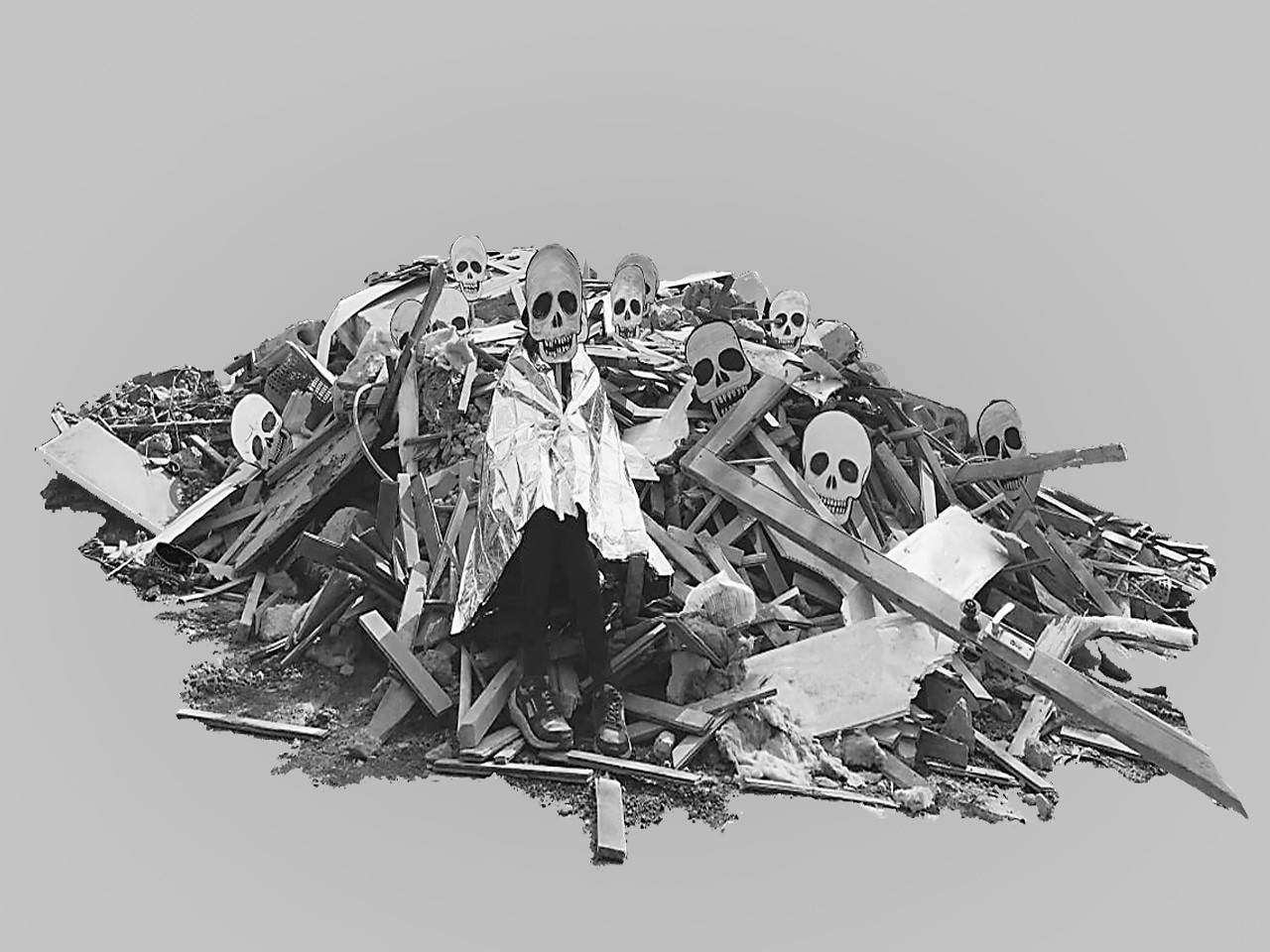Political Despair and Black Humour

Political despair is a situation of political impossibility: no hopes or illusions, no projects, no future, no way out, maximum alienation. This is reminiscent of the “bare life” as a state of biopolitical exception in Agamben’s interpretation [1]. However, it could just as well be called “political death” (bare life is political death). At the same time, and in a certain dialectical manner, it is also a “sickness unto death, ” as Kierkegaard characterized despair: the impossibility of death (while death is the desired end to the endless) [2].
This is the political position of an animal, or a corpse (when you see everything through the eyes of a corpse), or, better said, a corpse of an animal. For example, a dead dog.
Just as the “bare life” in the biopolitical state of modernity is not something special, exceptional — but an exception that has become the norm — political despair is also not something out of the ordinary. This despair is total: it’s a sort of inescapable background of any action, the back thought of any other thought. It can be ignored, it can be lived with and settled in — but it cannot be overcome by avoiding it or opposing it with something positive (because it’s impossible to find anything purely positive in the totality of despair).
The possibility of overcoming the despair lies rather in despair itself: one must despair to the end (although perhaps there is no end). This was also Kierkegaard’s recipe (or one of his author-characters): if you are in despair, it means that you have not yet despaired to the end.
One must despair in order to act — and vice versa. Thus political death becomes the starting point of political struggle. Marx describes the situation of the proletariat as desperate — but it is precisely in this situation that revolutionary action begins. The lower classes can not (bear any longer). Exploitation and inequality can be eliminated by those who have nothing to lose but their chains [3]. To revolutionize the proletariat means to awaken in them the consciousness of revolutionary despair. To despair oneself and others: this is the meaning of Benjamin’s formula of opposing the real state of exception to the state of exception that has become the norm [4].
One of the key factors in this transformation of despair into action (or perhaps the transformation of despair into itself) is humour. When there is nothing to lose, and at the same time nothing to do, the only thing left is to laugh. A dead animal laughs. The laughter of a political corpse is, for example, the laughter of a dead dog.
Laughter is affective, but it is such an affect that is both inside and outside the situation. Laughter that is infectious, sudden, uncontrollable is inseparable from the bodily involvement in what is happening — and at the same time takes one outside. Things shaking with laughter go beyond their destined boundaries.
In the situation of political despair, humour becomes black. It does not justify or legitimize political death in any way, and does not present it as anything other than complete absurdity. Nevertheless, it can be associated with a certain strange (and sometimes scary) satisfaction.
So, the “way out” of despair lies in a paradox: to get rid of despair, one must despair. But this paradox also closes the situation of political despair into something like a vicious circle. Action does not give hope and does not liberate, but modifies and multiplies despair.
Humour, again, is the model of this paradoxical ambiguity. It allows us to cope with the situation — there’s certainly something therapeutic in humour. But this medicine-pharmakos is also a poison: a remedy for despair that feeds on despair and infects with it. Black humor lives on political death, parasitizes on it and together with it constitutes a kind of general symptom.
[September 3, 2024]
+++
The text is notes for the conference in Tartu “Humour and Conflict in the Public Sphere”, and was partially used in the presentation: Åsa Harvard Maare, Max Evstropov, “Black humour and political despair: Making politics with the dead”, September 5, 2024.
[1] Giorgio Agamben. Homo Sacer: Sovereign Power and Bare Life.
[2] Søren Kierkegaard. The Sickness unto Death [under the pseudonym Anti-Climacus].
[3] Karl Marx, Friedrich Engels. The Manifesto of the Communist Party.
[4] Walter Benjamin. Theses on the Philosophy of History [Thesis VIII].
